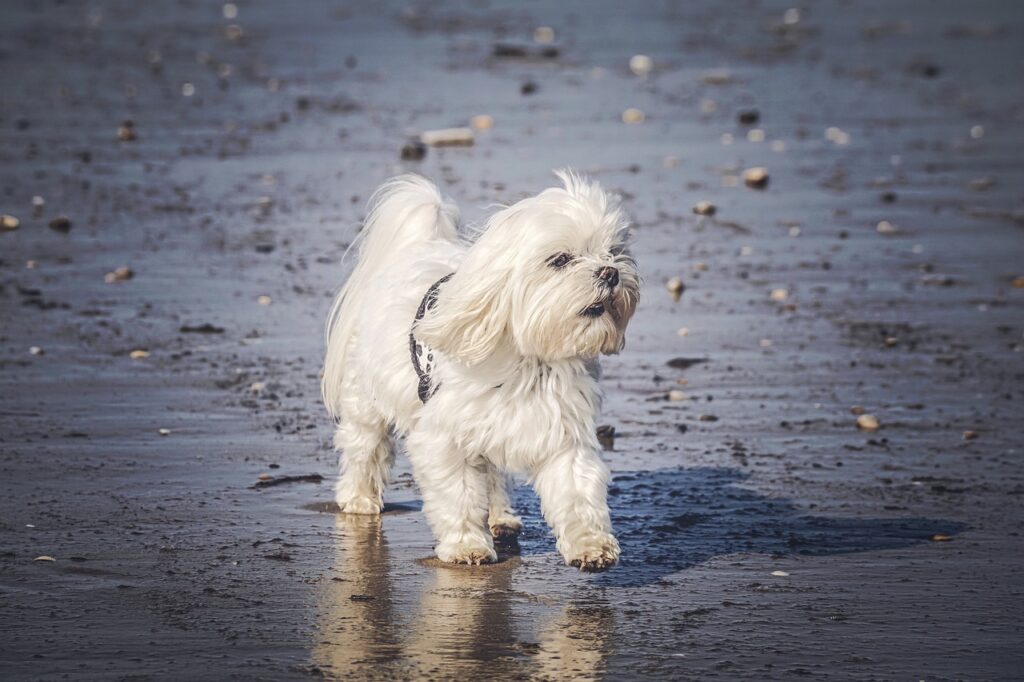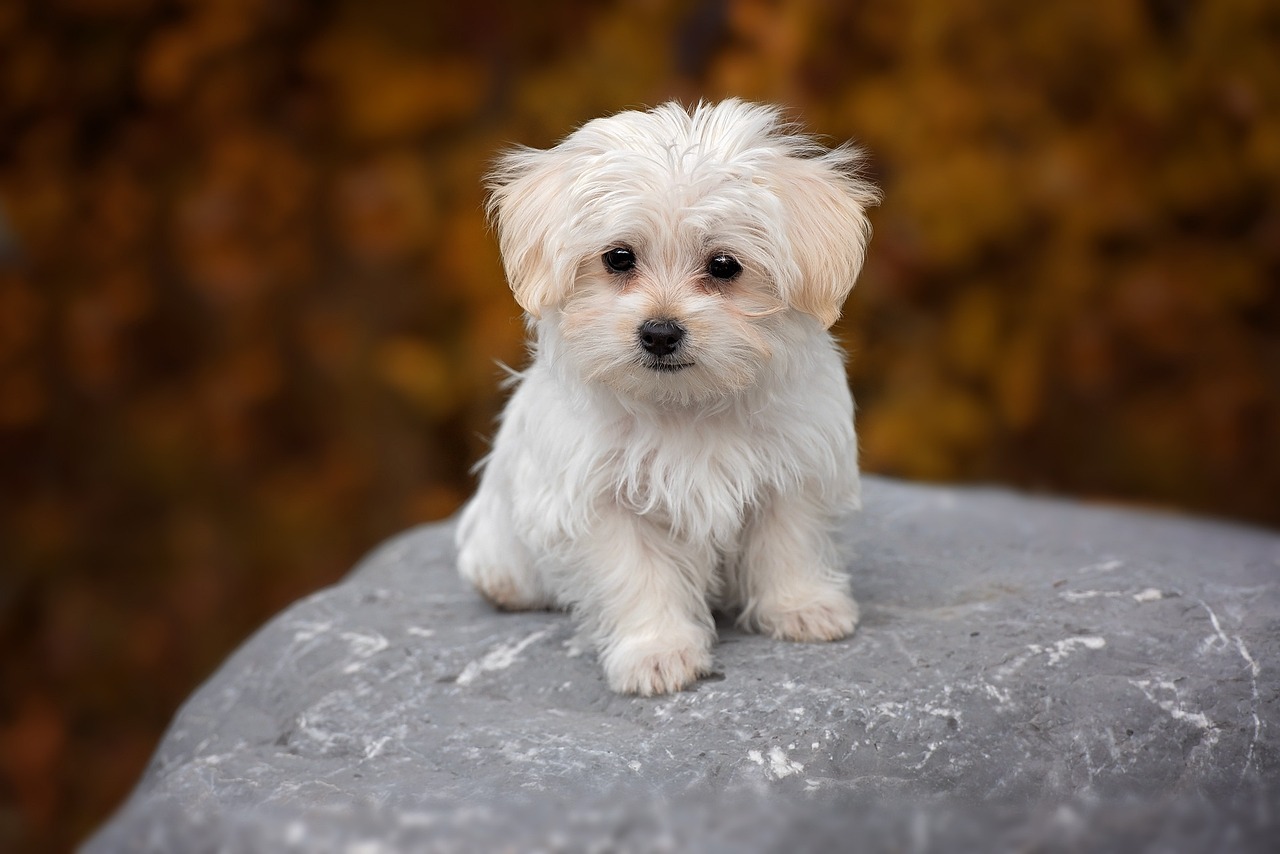1. Introduction Maltese Mixes
1.1 What is a Maltese Mix?
A Maltese Mix is simply a crossbreed that includes a Maltese in its lineage. These adorable pups can come from various combinations, such as a Maltese with a Poodle, Shih Tzu, or even a Chihuahua. Each mix brings a unique flair, making them wonderfully different in personality and looks while still retaining that signature Maltese charm.

1.2 Origins of Maltese Mixes
The Maltese breed itself originated from the Mediterranean region, particularly from the island of Malta. These dogs were adored by royalty and have evolved over centuries, with their sweet dispositions and elegant appearance. As breeders sought to create new breeds with the lovely Maltese attributes, various Maltese began to take shape, each one sharing the playful spirit and loving nature of the original.
13 Popular Maltese Mix Breeds
Here are 13 popular Maltese mixes:
- Maltipoo (Maltese + Poodle)
- Maltichon (Maltese + Bichon Frise)
- Malshi (Maltese + Shih Tzu)
- Maltese Yorkie (Maltese + Yorkshire Terrier)
- Morkie (Maltese + Maltese)
- Malten Terrier (Maltese + Terrier)
- Maltese and Beagle Mix
- Maltese and Dachshund Mix
- Maltese and Boxer Mix
- Maltese and Chihuahua Mix
- Maltese and Cocker Spaniel Mix
- Maltese and Pekingese Mix
- Maltese and Cavalier King Charles Spaniel Mix
2. Characteristics of Maltese Mixes
2.1 Physical Traits
Maltese mixes can vary widely in size and appearance depending on the other breed involved. Generally, these dogs inherit the Maltese’s long, silky coat, though the texture and color may differ. Some mixes may have a sturdier build, while others remain petite and delicate.
2.2 Personality and Temperament
Maltese mixes are often friendly, affectionate, and eager to please their owners. They typically bond closely with their families and can be quite playful. However, the temperament can also reflect the traits of the other breed involved, so it’s essential to research each mix’s particular characteristics.
2.3 Health Considerations and Common Issues
Like all dogs, Maltese are prone to certain health concerns. These may include dental issues, eye problems, and patellar luxation (knee displacement). Regular vet check-ups and proper care can help manage and prevent many of these issues.
Table of Contents
3. Care and Maintenance of Maltese Mixes
3.1 Grooming Needs
Grooming is an essential part of caring for a Maltese mix. Their fur wishes normal brushing to save you matting and tangling.Depending on the coat type, some mixes might require professional grooming every few months.
3.2 Nutrition and Diet
Feeding your Maltese a balanced diet is crucial. Always choose high-quality dog food appropriate for their size, age, and activity level. You may want to consult with a veterinarian to create a feeding plan that meets your dog’s specific needs.
3.3 Exercise Requirements
While Maltese mixes can be playful, they don’t require extensive exercise. Daily walks and playtime should suffice to keep them healthy and happy. However, each mix may have different activity levels based on the other breed’s characteristics, so adjust accordingly.
4. Training and Socialization

4.1 Basic Training Techniques
Training a Maltese mix can be an enjoyable experience.Use effective reinforcement methods, like treats and praise, to inspire correct behavior. Consistency and patience will go a long way in helping your pup learn commands and house-training.
4.2 Importance of Socialization from a Young Age
Socializing your Maltese early is vital for developing a well-rounded dog. Introduce them to diverse people, pets, and environments. Exposure to new situations can help them become confident and well-behaved adults.
4.3 Troubleshooting Common Behavioral Issues
If you encounter behavioral issues such as barking or separation anxiety, it’s essential to address these early. Engaging them in training classes or working one-on-one with a trainer can be beneficial.
5. Maltese Mixes in Different Living Situations
5.1 Maltese Mixes in Apartments vs. Houses
Maltese mixes can adapt well to both apartment and house living, thanks to their compact size and moderate exercise needs. Just ensure they have space to play and access to daily walks.
5.2 Compatibility with Other Pets
Most Maltese mixes get along well with other pets but early socialization is against critical. Monitor interactions, especially with larger dogs, to ensure everyone gets along.
5.3 Family Dynamics: Best Practices for Mixed Family Situations
When introducing a Maltese mix into a home with children, supervise interactions to ensure safety. Teach children how to treat the dog gently, and your Maltese will likely thrive in a bustling family environment.
Conclusion
Summary of Key Points
Maltese mixes are charming and lovable companions with unique characteristics depending on their other breed. Their grooming, exercise, and training needs can vary, but they are generally easy to care for and adapt well to different living situations.
Final Thoughts on Owning a Maltese Mix
Owning a Maltese can be a rewarding experience filled with joy and companionship. With proper care, training, and love, your furry friend can flourish, bringing happiness to your household.
Frequently Asked Questions (FAQs)
What are the best Maltese mixes for first-time dog owners?
Maltipoo and Maltichon are often recommended for first-time owners due to their manageable size, friendly nature, and eagerness to please.
How long do Maltese mixes typically live?
On average, Maltese can live between 12 to 15 years, depending on genetics and health care.
Are Maltese mixes hypoallergenic?
Maltese are generally considered hypoallergenic due to their low-shedding coats, making them suitable for individuals with allergies. However, individual reactions may vary, so it’s always good to spend time with a breed before bringing one home.
